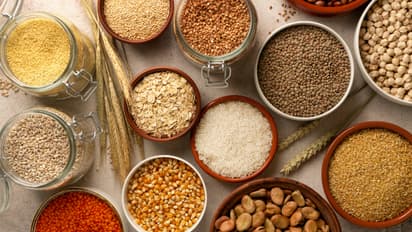Millets: Benefits and side effects—Who should consider avoiding them?
Published : Oct 29, 2024, 06:37 PM IST
Millets are known for their health benefits. Recently, many people have incorporated millets into their diet, replacing normal rice. However, some people should avoid millets altogether. Let's find out who they are.
Explore the latest Lifestyle News covering fashion, wellness, travel, Food and Recipes, and more. Stay updated with trending Health News, fitness tips, and expert insights to inspire your daily living. Discover personalized lifestyle trends that keep you stylish and informed. Download the Asianet News Official App from the Android Play Store and iPhone App Store for everything that adds value to your everyday life.
